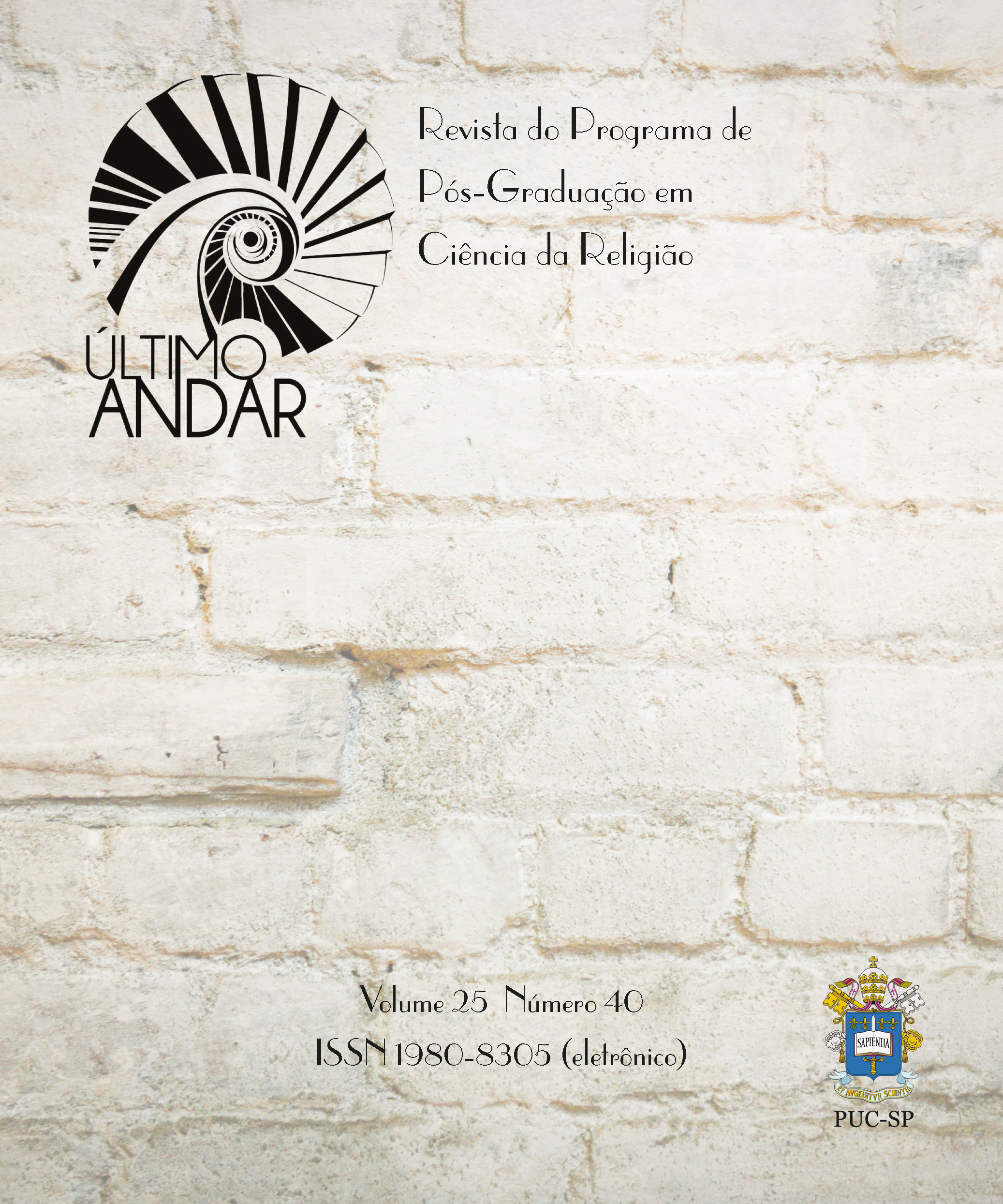An analysis of the Bantu Umbanda
Reinado and Candomblé de Angola triad at the Centro Espírita São Sebastião - CESS
DOI:
https://doi.org/10.23925/ua.v25i40.57518Keywords:
Umbanda, Reign, Candomblé of Angola, Centro Espírita São SebastiãoAbstract
This article aims to analyze three Afro-Brazilian religions – Umbanda, Reign and Candomblé of Angola – San Sebastian Spiritist Center (CESS). Assuming that the geographic space used by the three manifestations is the same, the study will allow us to understand how They survive in the same sacred place, ensuring and demarcating their specific identities. Identities already legitimized by their historicity and their cultural traditions. Therefore, it was necessary to collect data through visitation and observation, in addtion to the support of theoretical researchers such as: Vagner Gonçalves da Silva, Renato Ortiz, Aurino Góis among others. In the ende, it will be possible to understand how the legitimized identity is necessary to ensure the rites, the liturgy and the faith of its followers.
References
ALTUNA, Raul Ruiz de Asúa. Cultura tradicional banto. Luanda: Edital do Secretariado Arquidiocesano de Pastoral, 1985.
BARBOSA JÚNIOR, Ademir. O livro essencial de Umbanda. São Paulo: Universo dos Livros, 2014.
BENISTE, José. Dicionário yorubá-português. Rio de Janeiro: Bertrand Brasil, 2011.
CUNHA JUNIOR, Henrique. Introdução ao pensamento filosófico Bantu. Educação em Debate, Fortaleza, v. 1, n. 59, p. 25-40, 2010. Disponível em: http://repositorio.ufc.br/bitstream/riufc/15998/1/2010_art_hcunhajunior.pdf. Acesso em: 07 ago. 2021.
GÓIS, Aurino. J. O candomblé e a umbanda na cidade de Contagem, Minas Gerais: espaço e território. 2011. Tese de Doutorado (Geografia) - Pontifícia Universidade Católica de Minas Gerais, 2011.
LOPES, Nei. Novo dicionário banto do Brasil. Rio de Janeiro: Pallas, 1999.
MORAIS, Mariana Ramos de. Nas teias do sagrado: registro da religiosidade afro-brasileira em Belo Horizonte. Belo Horizonte: Ampliar, 2010.
OLIVEIRA, Eduardo David de. A epistemologia da ancestralidade. Disponível em: https://filosofia-africana.weebly.com/uploads/1/3/2/1/13213792/eduardo_oliveira_-_epistemologia_da_ancestralidade.pdf. Acesso em: 15 nov. 2021.
OLIVEIRA, Irene Dias de; JORGE, E. F. C. Espiritualidade umbandista: recriando espaços de inclusão. Revista Horizonte, Belo Horizonte, v. 11, n. 29, p. 29-52, 2013. Disponível em: https://periodicos.pucminas.br/index.php/horizonte/article/view/P.2175-5841.2013v11n29p29/5085. Acesso em: 11 nov. 2021.
ORTIZ, Renato. A morte branca do feiticeiro negro: umbanda e sociedade brasileira. São Paulo: Brasiliense, 1999.
ROHDE, Bruno Faria. Umbanda, uma Religião que não Nasceu: breves Considerações sobre uma tendência dominante na interpretação do universo umbandista. Revista Estudos da Religião, São Paulo, p. 77-96, 2009. Disponível em: https://www.pucsp.br/rever/rv1_2009/t_rohde.pdf. Acesso em: 29 dez. 2021.
SANTOS, Guaraci Maximiano dos. Umbanda, Reinado e Candomblé de Angola: uma tríade Bantu na promoção da vida responsável. 2015. Dissertação de mestrado (Ciências da Religião). Belo Horizonte. Pontifícia Universidade Católica de Minas Gerais, 2015.
SILVA, Ornato J. Iniciação de Muzenza nos Cultos Bantos. Rio de Janeiro: Pallas, 1998.
SILVA, Vagner Gonçalves da. Orixás da metrópole. Petrópolis: Vozes, 1995.
SILVA, Vagner Gonçalves da. Candomblé e Umbanda: caminhos da devoção brasileira. 5. ed. São Paulo: Selo Negro, 2005.
Downloads
Published
How to Cite
Issue
Section
License
Copyright (c) 2022 Último Andar

This work is licensed under a Creative Commons Attribution-NonCommercial 4.0 International License.
The Authors maintain the copyright and grant the journal the right to first publication, with the work simultaneously licensed under the Creative Commons Attribution License that allows the sharing of the work with acknowledgment of authorship and initial publication in this Journal.
Authors are authorized to assume additional contracts separately, for non-exclusive distribution of the version of the work published in this journal (eg, publishing in institutional repository or as a book chapter), with acknowledgment of authorship and initial publication in this journal.
Authors are allowed and encouraged to publish and distribute their work online (eg in institutional repositories or on their personal page) at any point before or during the editorial process, as this can generate productive changes, as well as increase impact and citation of the published work.


